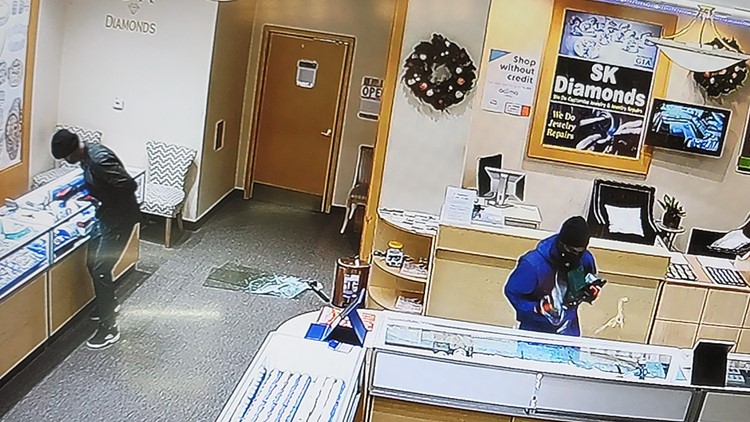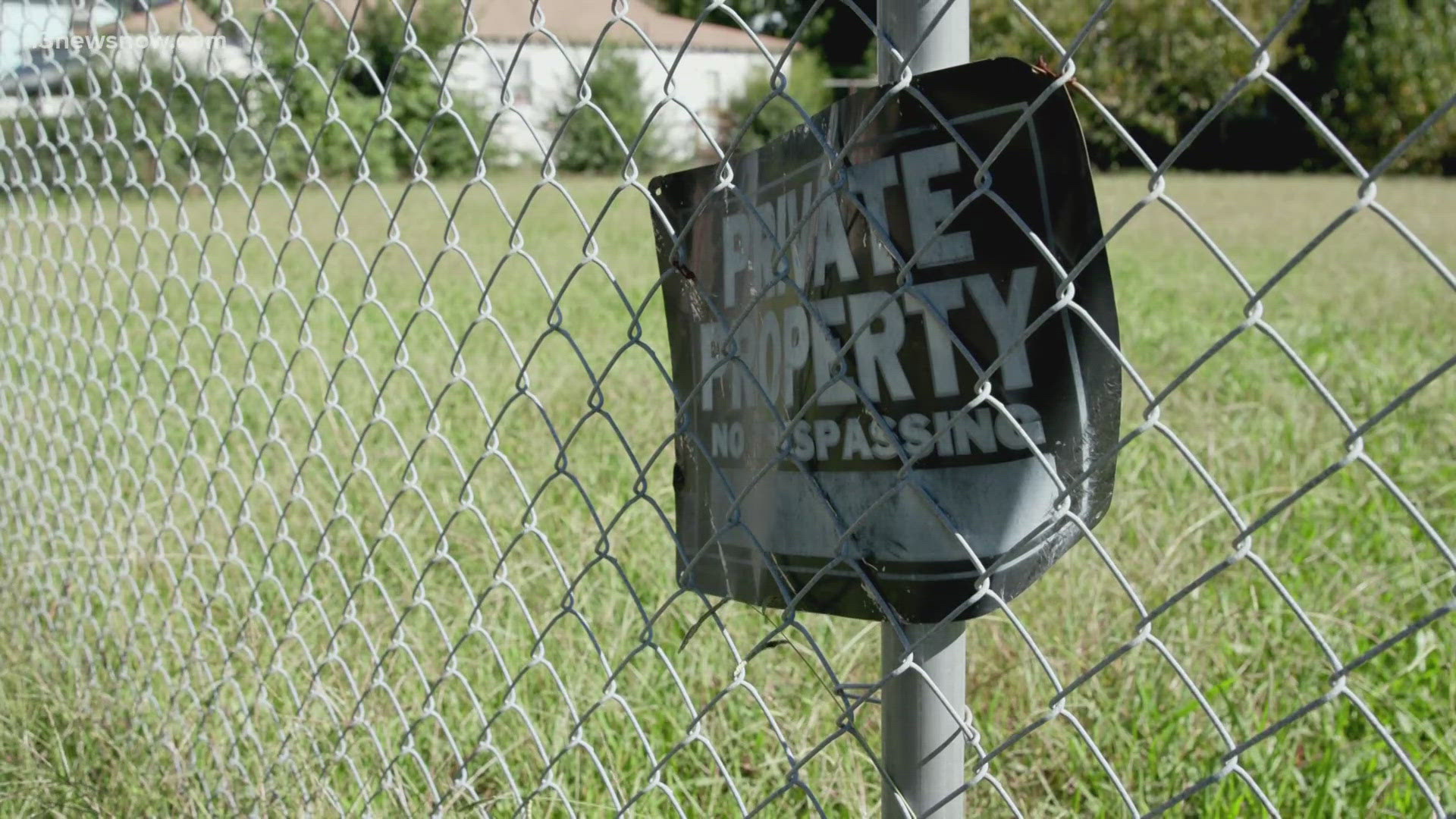RICHMOND, Va. — It's a scene that's gone viral over and over, with social media videos showing groups of thieves brazenly stealing bags of merchandise from stores around the country.
Organized retail theft is a financial problem for businesses and a crime trend that police and lawmakers want to stop.
In Virginia, where a state report found that approximately $1.3 billion in merchandise is stolen this way annually, state lawmakers approved legislation Thursday that will make organized retail theft a felony and make those convicted of the crime eligible for prison sentences of up to 20 years.
The legislation, which has the governor's support, will make it a Class 3 felony for anyone to conspire or act in concert with one or more people to steal retail merchandise with a value exceeding $5,000 in a 90-day period, with the intent to sell the stolen goods for profit.
Supporters of the legislation said thieves often sell the stolen merchandise through Amazon, eBay, and other online marketplaces.
"They're not stealing so they can go home and feed their family. This is theft for some kind of financial gain," said Republican Del. Kathy Byron, the lead sponsor of the House bill.
At least two dozen states have enacted laws to address organized retail theft, according to the National Conference of State Legislatures.
In Virginia, this year's push came after related legislation last year largely pitted brick-and-mortar retailers, including Walmart, against online retailers, including Amazon.
The legislation was tabled so that the office of Virginia Attorney General Jason Miyares could study the issue.
In 2022, Miyares' office held three workgroup meetings that included lawmakers, representatives of major retailers, trade groups, and law enforcement. That effort ended with a consensus to pursue legislation.
Both Byron's bill and a separate bill sponsored by Republican Sen. Richard Stuart met resistance from some Democrats and criminal justice advocates who said the legislation could ensnare people who may resort to stealing to survive, including low-income people, the homeless, and people struggling with drug addiction.
The original bills contained a lower theft threshold, saying goods with a total value exceeding $1,000 could result in an arrest for organized retail theft. Amending the bills to raise the threshold to $5,000 mollified some critics who said the legislation now would be less likely to be used against petty thieves.
But others remain opposed to the legislation.
Brad Haywood, a public defender who founded Justice Forward Virginia, a group that advocates for criminal justice reform, said claims that retail theft has reached crisis levels in recent years have been exaggerated.
"The premise behind the bill is a manufactured controversy," Haywood said.
An executive with Walgreens acknowledged in an earnings call with analysts last month that the drugstore chain may have overblown the shoplifting threat and gone overboard with added security measures.
"Maybe we cried too much last year," James Kehoe, Walgreens' global chief financial officer said during the call. "Probably we put in too much and we might step back a little bit from that."
Democratic state Sen. Joe Morrissey said he finds the legislation overly punitive and said it could still be used against segments of the population it is not meant to target.
"It creates a Class 3 felony — (punishable by) up to 20 years — for a person who commits multiple thefts, but a lot of these people who are committing multiple thefts are drug addicts or poor people," Morrissey said.
The legislation drew a range of support from both brick-and-mortar and online retailers, including Walmart and Amazon. The Virginia Retail Federation, the Virginia Association of Commonwealth's Attorneys and the National Federation of Independent Business also backed the measure.
Stuart said organized retail theft is a major problem in Virginia and around the country.
"This is not about a poor old drug addict (stealing)," Stuart said. "This is about organized crime, people being directed and acting in concert with each other."
A report released by the work group convened by Miyares last year said that approximately $1.3 billion of merchandise is stolen in Virginia annually, costing the state more than $80 million in lost tax revenue.
"You can hardly turn the TV on anymore without seeing these crime rings. This is their career, they do this for a living," said Jodi Roth, a lobbyist for the Virginia Retail Federation.
A federal bill signed into law in December requires online marketplaces to collect, verify, and make available to buyers identification information for high-volume third-party sellers on their platforms.
The National Retail Federation, in its 2022 security survey of retailers, found that inventory loss -- called shrink — when taken as a percentage of total retail sales in 2021, accounted for $94.5 billion in losses in 2021, up from $90.8 billion in 2020.
The organization said organized retail crime is a "critical component" of that shrink and a growing challenge. Retailers reported a 26.5% increase in organized retail crime, on average.



